Everywhere is not a blockchain game, but creating the "Roblox for older players" faces other challenges
Everywhere promises the world, but only time (and support) will tell if it can deliver
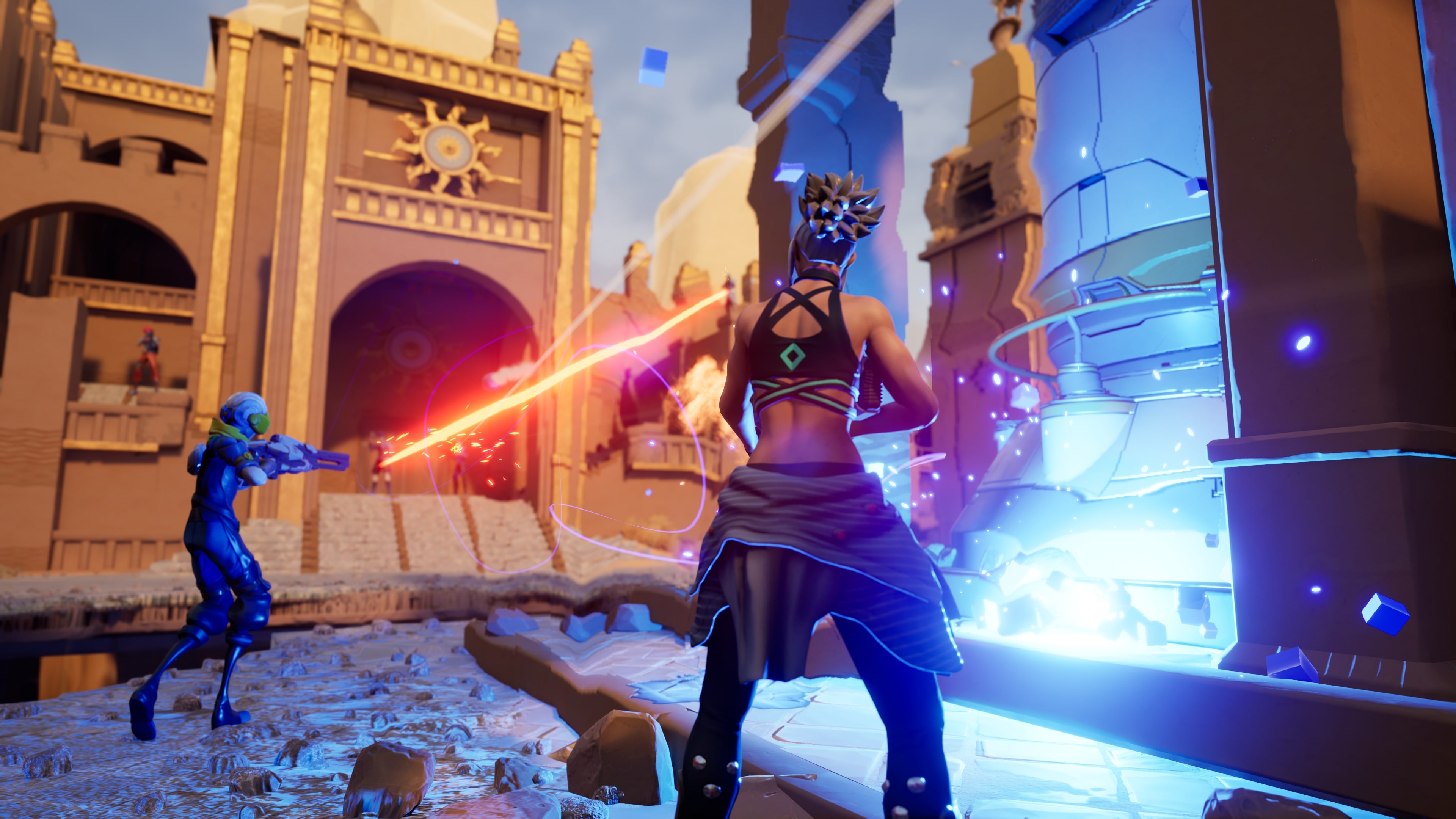
"We are not a blockchain game," says the opening slide of Everywhere assistant game director Adam Whiting's presentation. The weight of shared unease among the journalists present in the conference room lifts – not because any of us have any stake in Build A Rocket Boy's incoming debut venture (not that I'm aware of, at least), but because it seems clear at this stage we'll hear the letters N, F, and T stringed together a lot less over the course of the studio visit than we otherwise might have. "Why no NFTs?" says Leslie Benzies – former Rockstar North president, ex-lead Grand Theft Auto developer, Build A Rocket Boy founder, and current Everywhere game director – later in the day. "Because we don't need them."
The confusion, for those out of the loop, stems from last year. Shortly after the game's grand reveal at Gamescom's Opening Night Live, the internet noticed Build A Rocket Boy had a subcategory on its job listings page for 'blockchain', which the studio itself later reasoned was for research purposes only. Everywhere is built in Unreal Engine 5 not the blockchain, a statement affirmed at the time, which is again the primary message relayed and underlined before we're shown the game in motion.
As a connected, player-driven experience that promises a mix of free-to-play and premium content, designed to be something along the lines of "Roblox but for older players", what we're shown is impressive, exciting, and hugely ambitious.
Big pictures
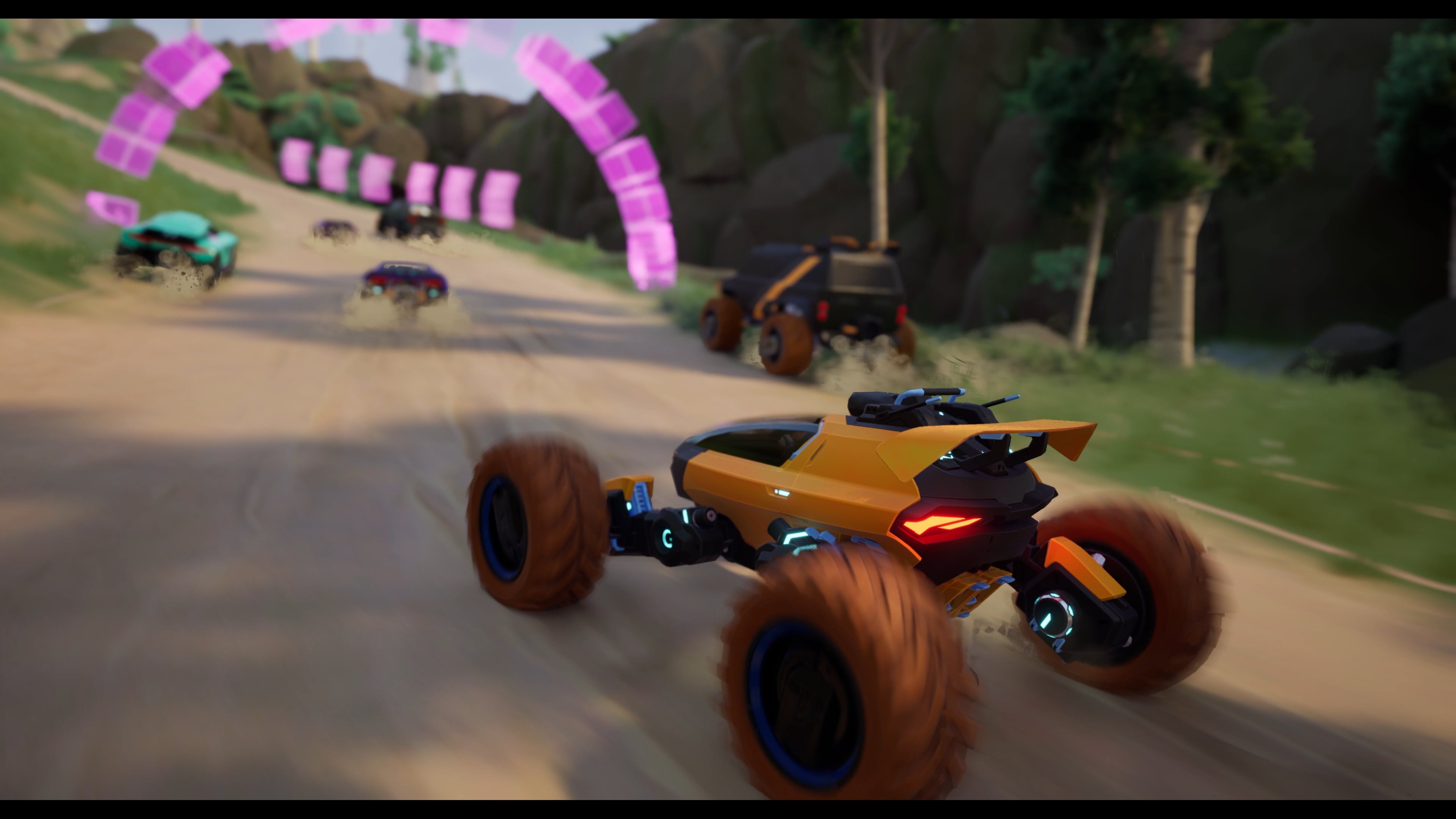
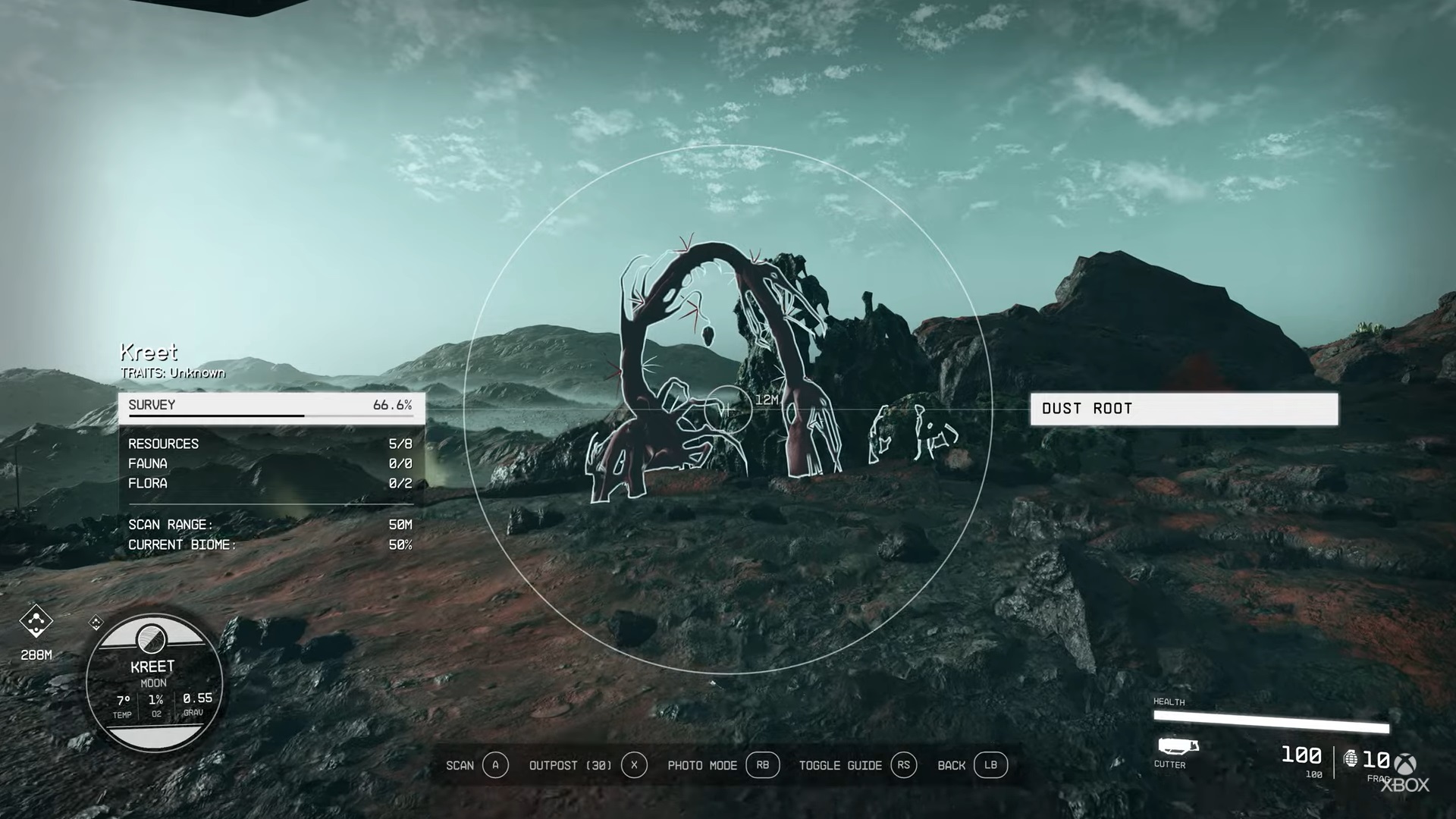
Our hands-off showcase kicks off with a snaking camera shot that weaves around Utropia, the main multi-biome social space at the center of the Everywhere map. A tutorial introduces the basics of traversal in and around a forested backdrop, filled with platforms of varying heights that can be reached with double and triple jumps as required. Lore in Utropia is light-touch on the developers' end, explains Whiting, with players primarily responsible for the evolution of the world that currently spans a Combat District, Racing District, Entertainment District, and an art gallery-like space called 'The Collection'. Glowing portals act as gateways to these specialist areas from player-made 'Sanctuaries', and while the likes of the Combat District expectedly portray elements of violence, in its bid to appeal to players of all ages, Everywhere's weapons are strictly energy-powered with no ballistics or bullets.
Everywhere's targeted universal appeal, then, is rooted in creation. User-generated content (UGC) plucked from an exhaustive suite of building components lets players craft social spaces, battle arenas, race tracks, and Zelda-like challenge rooms, to name just some of what we're shown being built from the ground up in real time. Pieces of UGC are named 'ARC' in-game, with the tool for creating ARCs named 'ARCadia' – with the overarching aim here being to help players gain an appreciation of coding without being forced to use actual code. In doing so, Build A Rocket Boy hopes to empower players with the lowest possible barrier, and to help them "manifest ideas in record time."
Players can also save their hand-crafted creations as 'Stamps', which can then be found in shops and transferred into other players' games via in-game currency. This is demonstrated to us in practice with a sprawling Hot Wheels-esque race course that culminates in a huge, poison-filled boss room that the devs drop a player-made Final Fantasy 7's Ruby Weapon-looking enemy into, which the player character must then shoot to smithereens. And breathe.
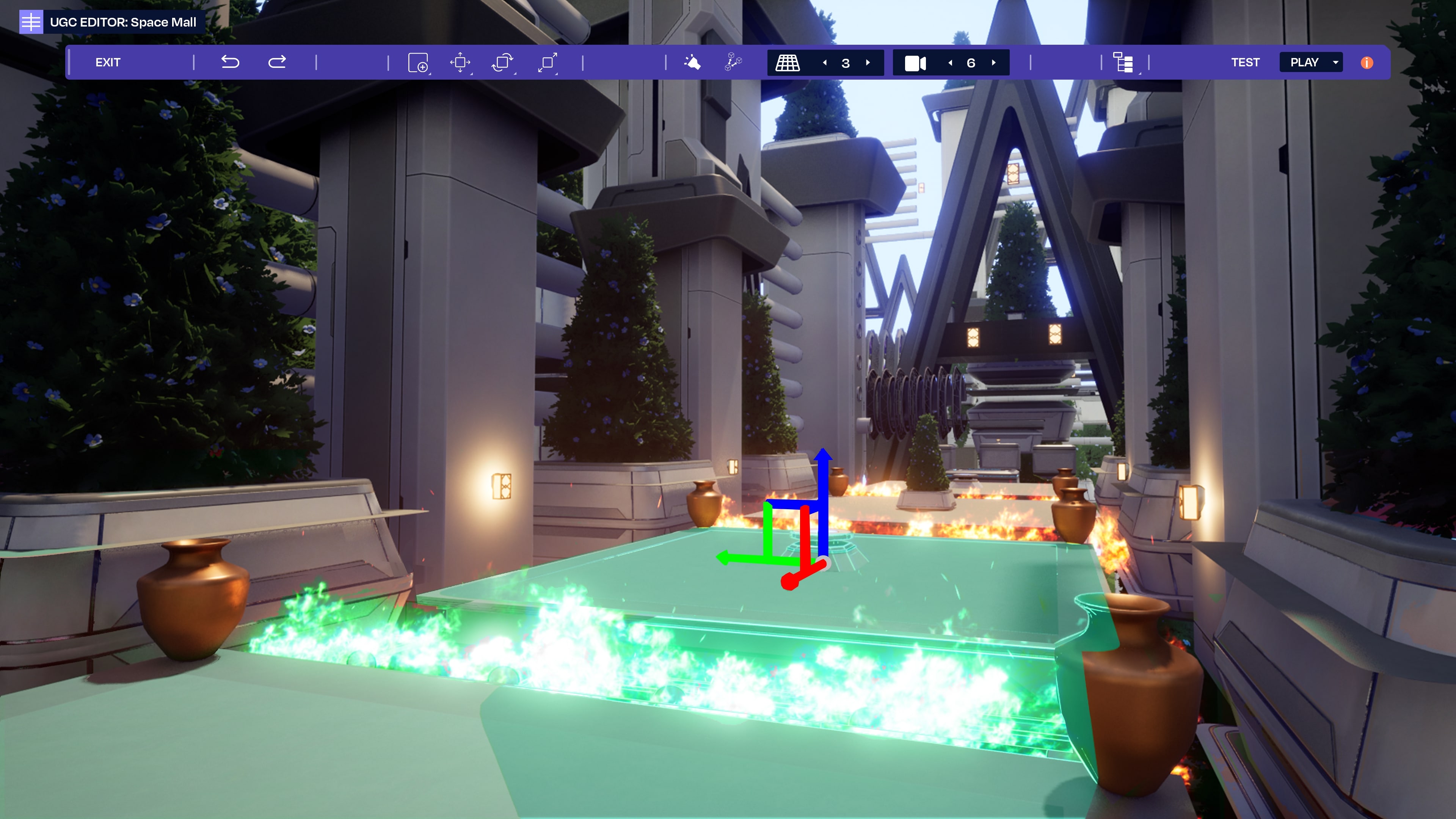
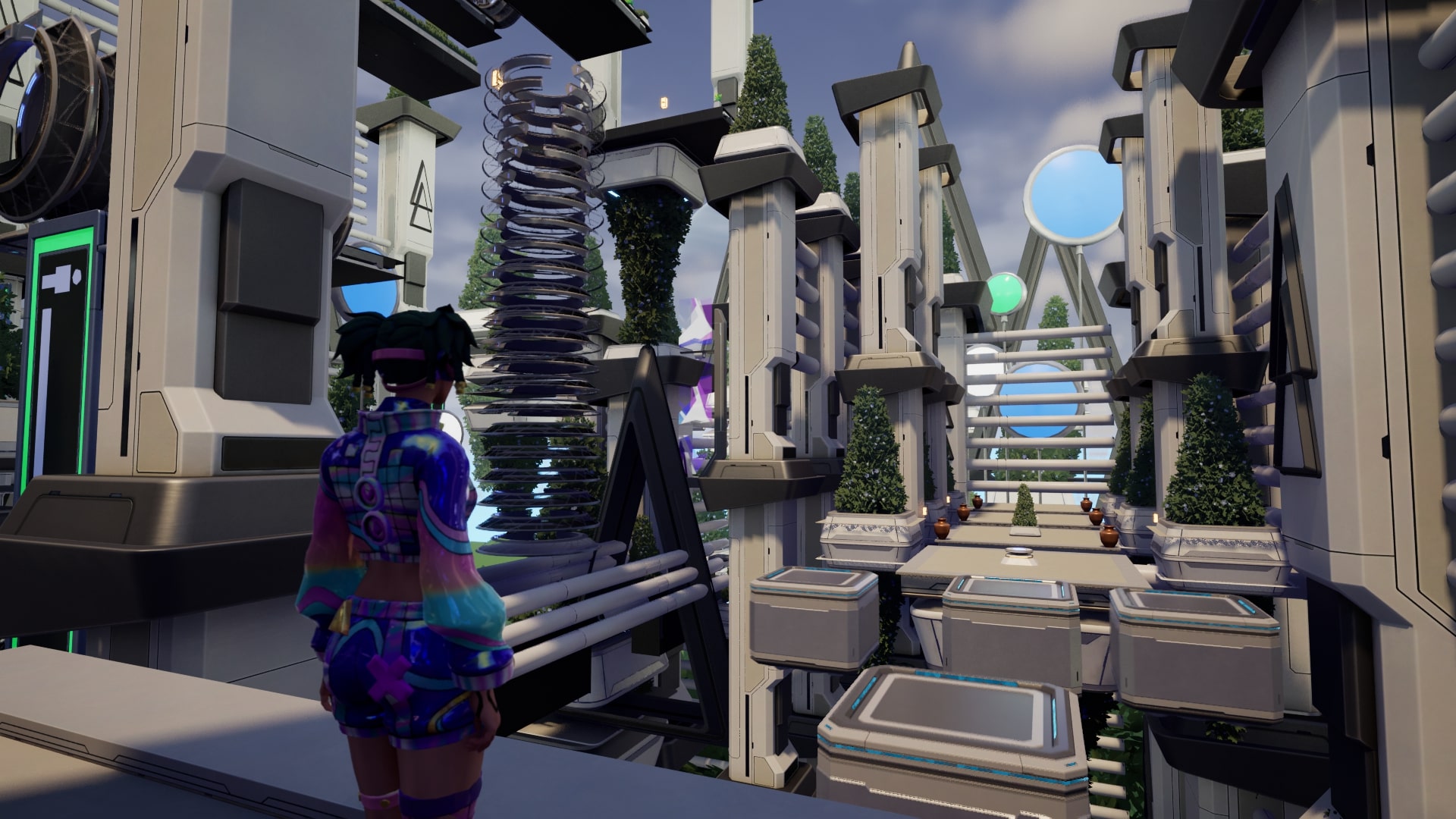
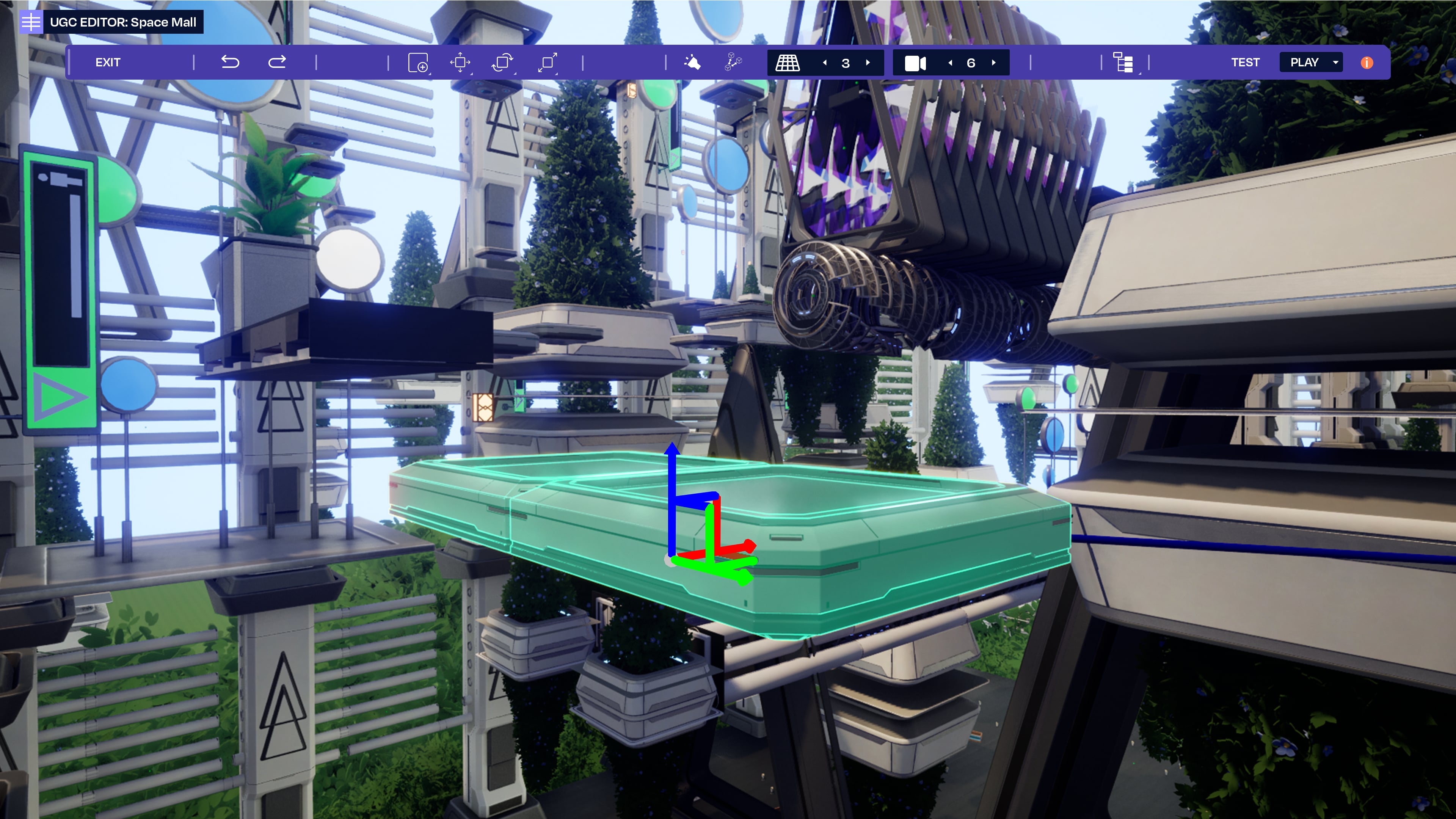
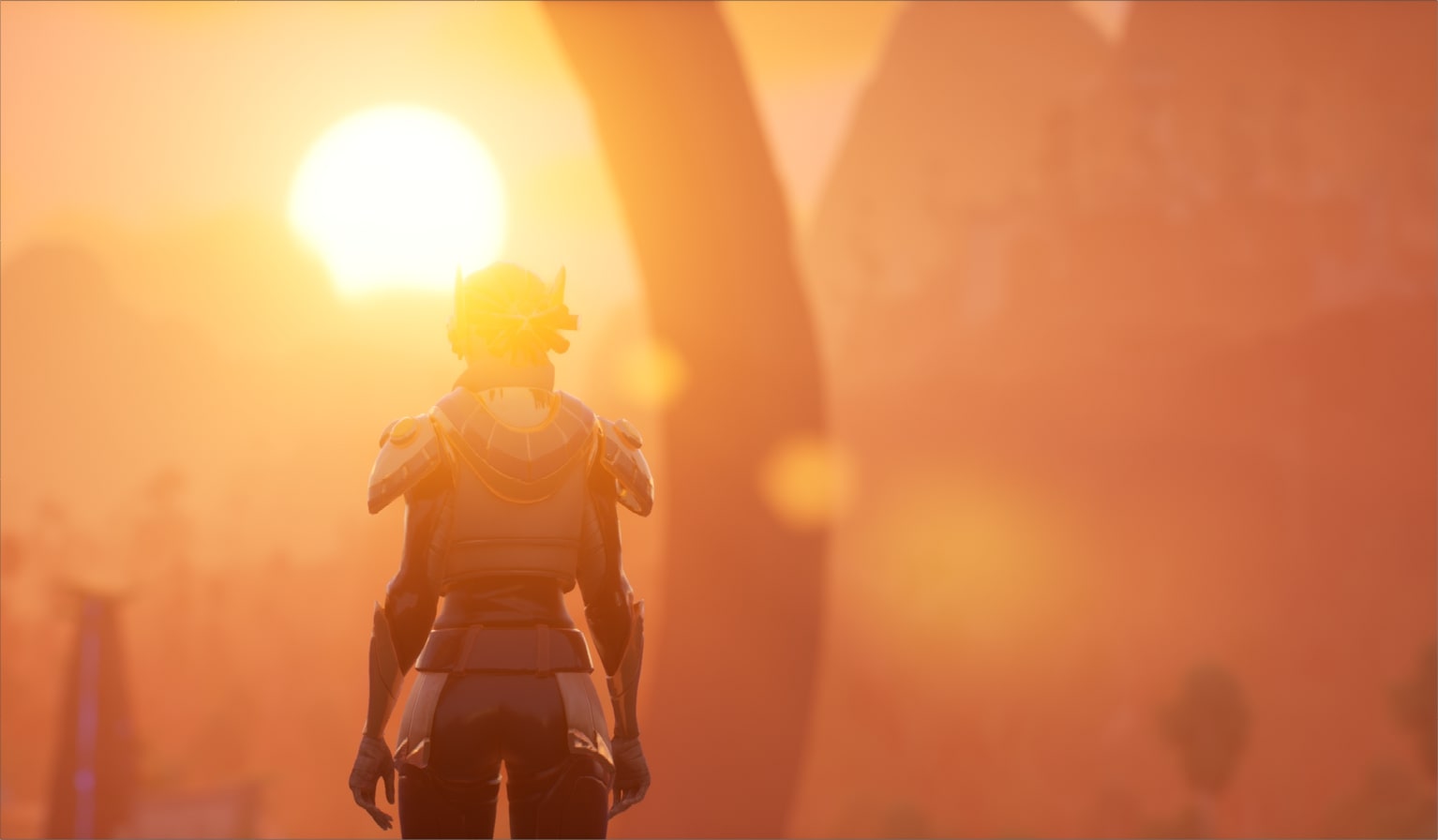
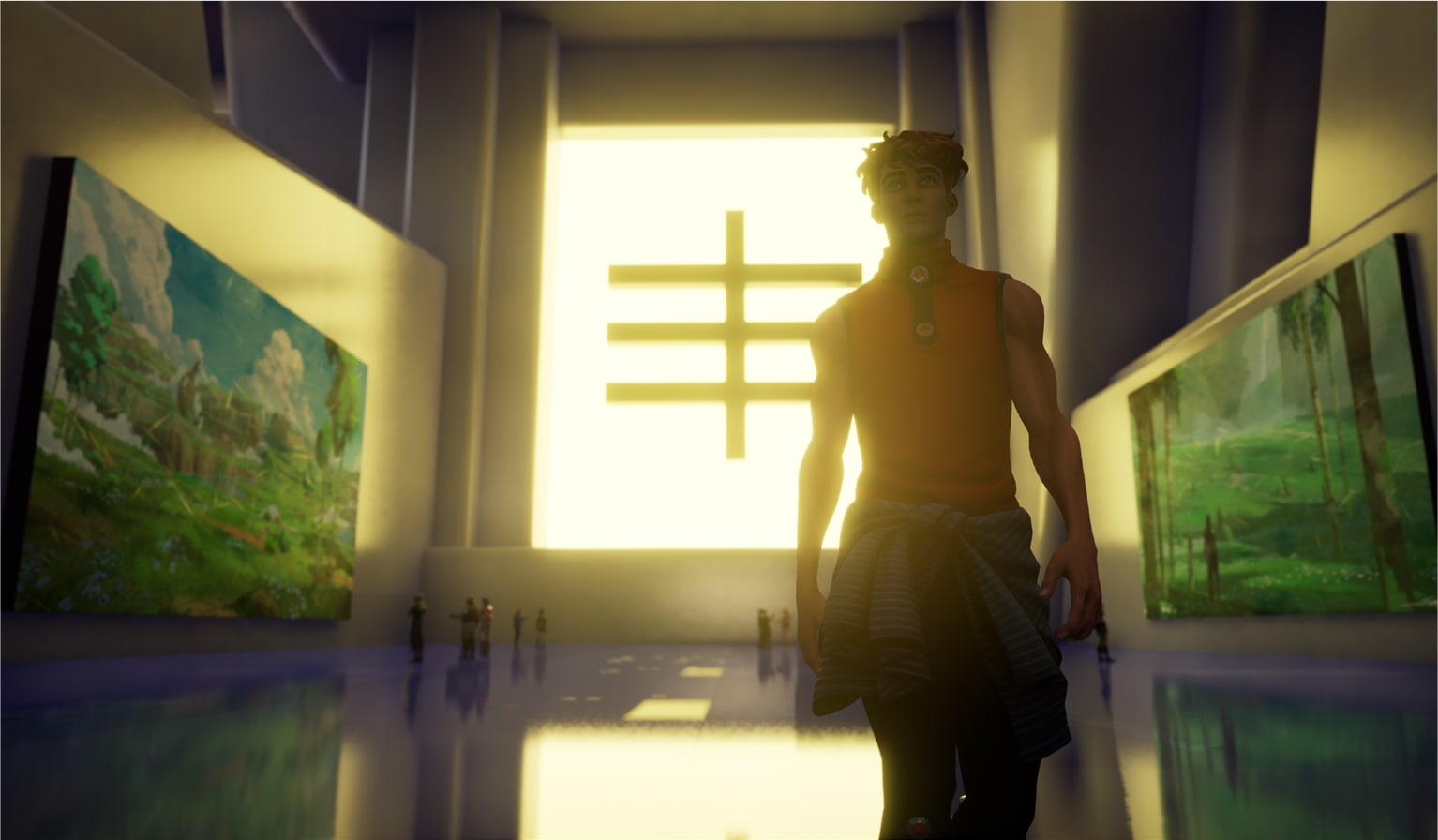
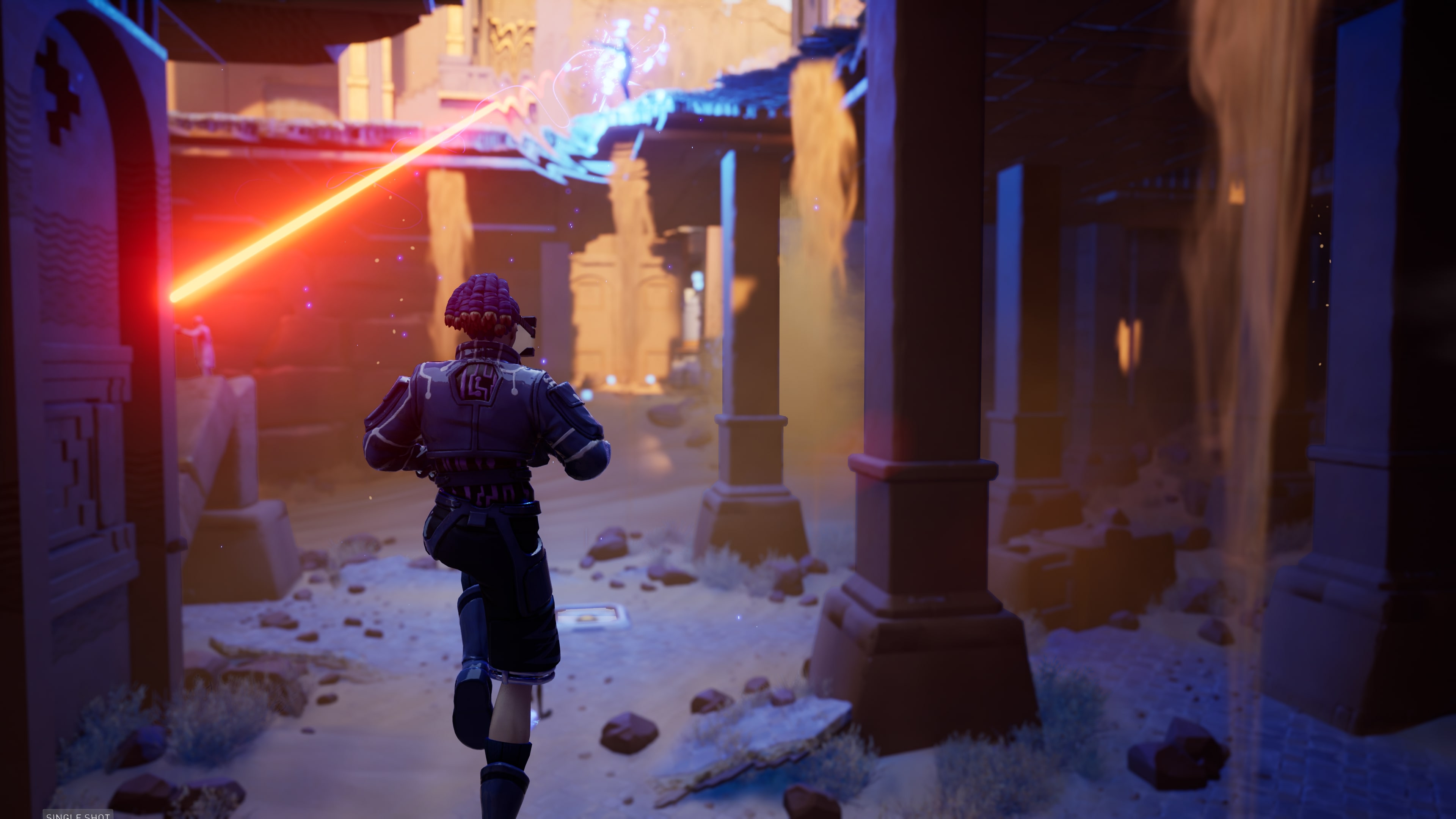
Still with us? Don't worry, I struggled to wrap my head around it all too, and I was being shown it first-hand. Even more so when Whiting guided his character through the Entertainment District to a cinema theater to offer a glimpse of MindsEye – the premium AAA action-adventure title that Build A Rocket Boy is concurrently working on alongside Everywhere, which can also be accessed in-game. Follow that link for more on that, but know that it looks stunning, and again blows open the scope for more similar projects in this space, using Everywhere as a platform for approach.
Sign up to the GamesRadar+ Newsletter
Weekly digests, tales from the communities you love, and more
With all of that, I'll admit that I love what Everywhere is proposing. The scope for creation, for ingenuity, for socializing, and for educating is exciting; as a player, and even as a parent of two young children making their first tentative steps into gaming, I think Everywhere is brimming with possibilities. But while all of this is impressive, it's almost impossible to pass proper judgment at this juncture without going hands-on, and without experiencing the world that it promises to deliver until it's full of like-minded creators.
There are flashes of Fortnite here, of Roblox, Dreams, Minecraft, PlayStation Home, and even Habbo Hotel – games and experiences whose collective success and identity was grown and forged over time. Everywhere and Build A Rocket Boy are aiming to enter the conversation at an advanced stage and without much in the way of preamble, which is a huge risk in itself. But with the likes of Fortnite leaning heavier on its creative side more than ever before, by way of its brain-melting new mod tools, if Everywhere hits the ground running as planned, it really could be a force to be reckoned with.
Is this the future?
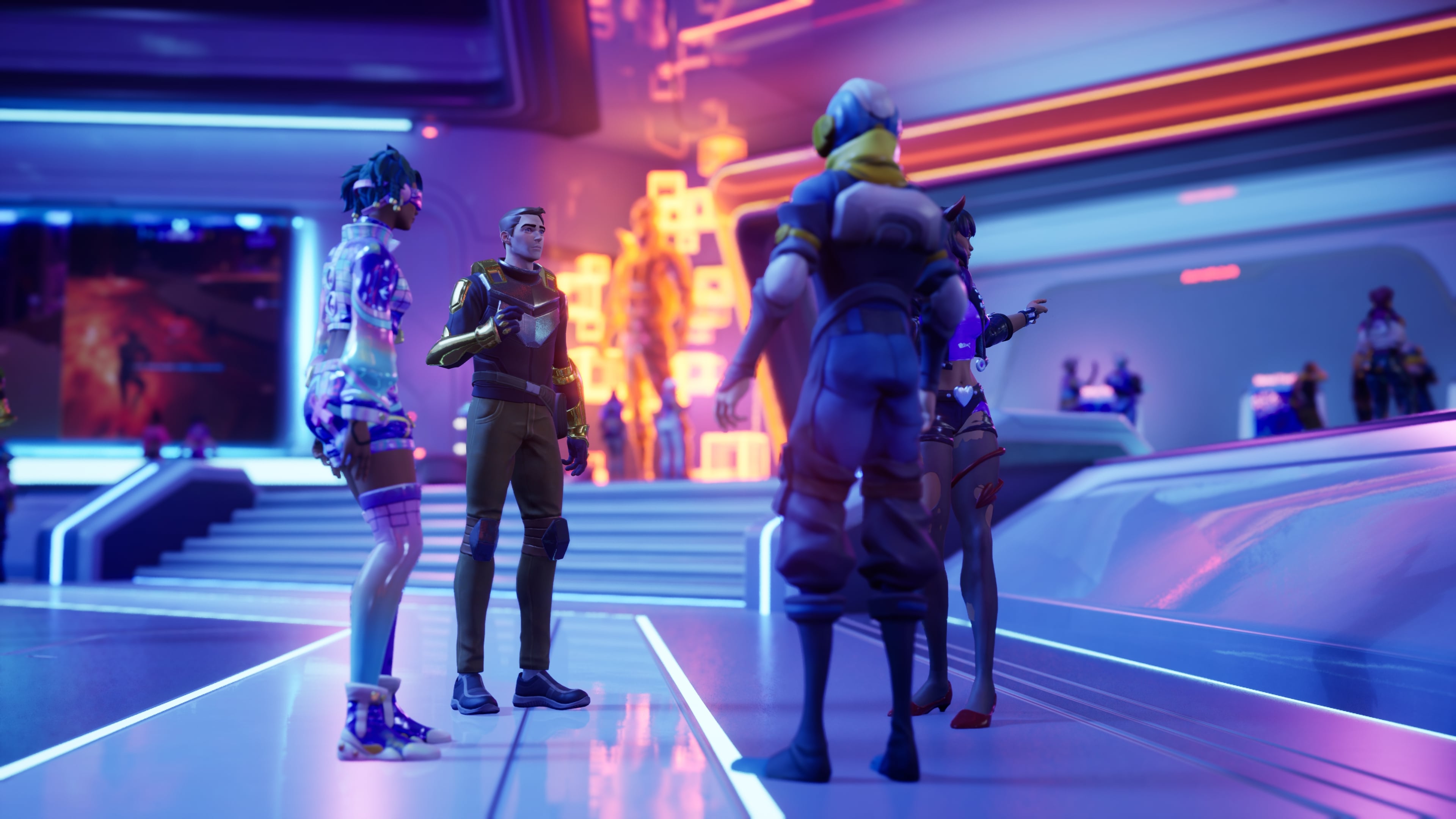
"Because activity is the lifeblood of ambitious projects like these."
Situated at the foot of Leith Walk in the Scottish capital of Edinburgh, the back end of Build A Rocket Boy's headquarters looks out onto the North Sea. From the floor-to-ceiling windows that face the water, the MS Victoria stands proudly as an indefinitely docked cruise ship-turned-temporary accommodation hub for over 1,200 asylum seekers fleeing the Russo-Ukrainian War. At the front of the old casino building, a mess of roadworks snakes down Ocean Drive amid the city's oft-criticized tram installation scheme, a project that's run hundreds of millions of pounds over-budget and is now into its 15th year of existence. It's a coincidence that there's so much going on around the studio, but I can't help but compare these converging realities with what Everywhere hopes to achieve in-game.
Because activity is the lifeblood of ambitious projects like these. It's the reason why Fortnite continues to impress and why PUBG Battlegrounds has smashed records for six years. It's the reason Counter-Strike: Global Offensive has topped Steam's most-played charts for over a decade, and why GTA 5 and GTA Online have managed to successfully span not one, not two, but three consecutive console generations. Everywhere is not a blockchain game, Build A Rocket Boy is clear on that, but it's got everything to prove if it's to earn its place at that table. Time will tell if it's got what it takes – but I'm sure as hell excited to see it try.
Everywhere is due in 2023, first on PC followed by other platforms at some point thereafter

Joe Donnelly is a sports editor from Glasgow and former features editor at GamesRadar+. A mental health advocate, Joe has written about video games and mental health for The Guardian, New Statesman, VICE, PC Gamer and many more, and believes the interactive nature of video games makes them uniquely placed to educate and inform. His book Checkpoint considers the complex intersections of video games and mental health, and was shortlisted for Scotland's National Book of the Year for non-fiction in 2021. As familiar with the streets of Los Santos as he is the west of Scotland, Joe can often be found living his best and worst lives in GTA Online and its PC role-playing scene.


